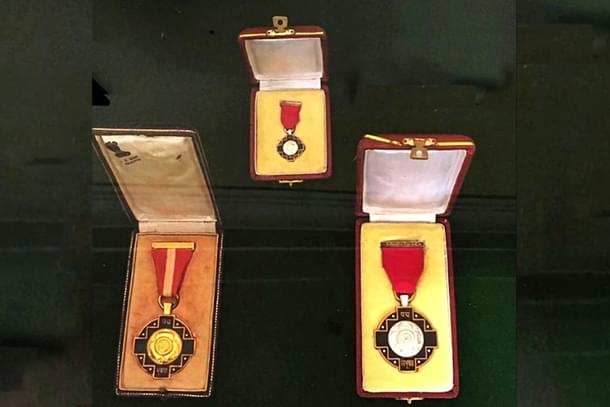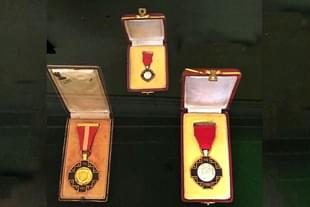Ideas
People’s Padma: Shouldn’t Awards Carry A Reward, Especially When Recognition Alone Does Little For The Recipients Or Their Cause?
Harsha Bhat
Dec 07, 2021, 07:24 PM | Updated Dec 08, 2021, 11:27 AM IST
Save & read from anywhere!
Bookmark stories for easy access on any device or the Swarajya app.


Its been almost a month since the Padma Award ceremony was held. The barefoot recipients, the unsung heroes, the ones whose life hasn’t been about seeking any award, the ones who made the most news, have probably gone back to what they did after all two-three weeks of felicitations that followed.
But the thought that Harekala Hajabba planted when I met him at Hotel Ashoka, where he had been put up, refused to leave me. ‘I asked the Finance Minister for Rs 1 crore grant for the school’, he said in all naïveté. Because that‘s what would make the difference to his cause, the school he built by selling oranges.
For else, nothing much changes in his life, even after having an entire nation and the world in awe of his work. The Padma Shri sanad (certificate) signed by the President of India will be framed and hung on the wall in his house, which is already flooded with countless ones, while the medallion and its replica make their way atop a shelf.
Yes, this is special, cause it is the nation’s fourth-highest. But what would make it even more meaningful is, if the award is backed by a befitting reward; befitting to aid them in the further pursuit of their unique efforts, especially given the pragmatic shift in the kind of awardees that the current government has engineered.
Otherwise, awards bring only attention. Like Telangana’s Pochampally village, which recently won the ‘Best Tourism Village’ at the twenty-fourth session of the United Nations World Tourism Organisation’s General Assembly, but its 3,000 odd families are reportedly living in utter poverty. And news reports of past Padma awardees struggling for basic healthcare or to have their pleas heard are too many to be ignored.
The Government of India instituted two civilian awards-Bharat Ratna and Padma Vibhushan in 1954. The Padma Bhushan had three classes - Pahela Varg, Dusra Varg and Tisra Varg, which were later renamed as Padma Vibhushan, Padma Bhushan and Padma Shri in 1955.
But none of these come with any cash prizes, unlike, say, the highest sporting honours of India. The highest sporting honour Khel Ratna comes with a cash prize of Rs 25 Lakh, while the second Arjuna award comes with a cash prize of Rs 15 lakh.
While Bharat Ratna also carries no monetary grant, it grants the recipients, who are to be a maximum of three in a year, certain privileges that include treatment as a state guest by state governments when travelling within a state, Indian missions abroad to facilitate recipients when requested, entitlement to a diplomatic passport, lifetime free executive class travel on Air India, and are placed seventh in the Indian order of precedence - above the CM’s of states and others.
The Padma awards, especially now repositioning themselves as ‘People’s Padma’ and awarding the truly deserving, can surely be backed by a monetary reward, either by the centre and/or maybe the states that the recipients belong to. Take a leaf out of Odisha’s book may be, from 2019, but wait not for the Padma awardees to beg for any of it.
For the hoards of cheques issued to star achievers in fields that anyway garner good public attention, a few could sure be handed out to the deserving, especially in the fields of social work, art, education which will serve as a boost to the cause they have spent their lives working on.
This can also encourage private players to set aside a sum to support such efforts as part of their corporate social responsibility (CSR) fund, probably. As for those who may not need it, they can donate it to a cause of a fellow recipient or any other.
While Prime Minister Narendra Modi earlier today (7 December), in his address to the BJP MP’s at the parliamentary meeting, is said to have asked them to honour the recipients of the awards in their constituencies, it would certainly help if it could also nudge them to go that extra mile.
For the fervour will die, the medal will sit pretty on their shelves and the citations framed, and the awardees be a name in the list. But institutionalised monetary support, be it in the form of a cash reward or the travel and state-guest accommodation provisions, or support to the cause they espouse, will go a long way in telling them in kind that the government and the nation does care.
Harsha Bhat is an author, linguist, content strategist, and a compulsive chronicler of Bharat's civilisational heartbeat.





